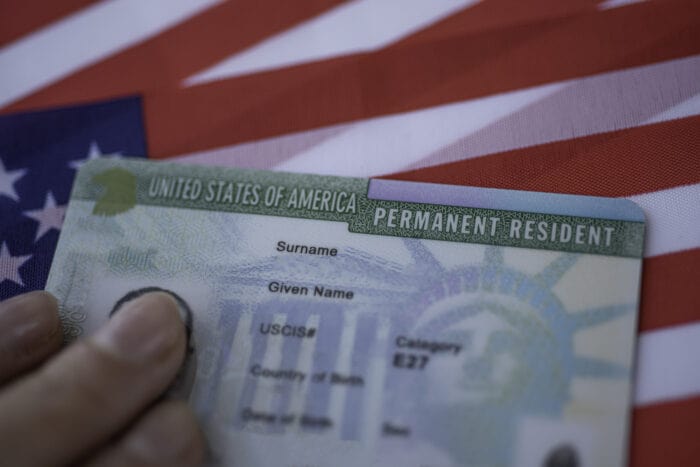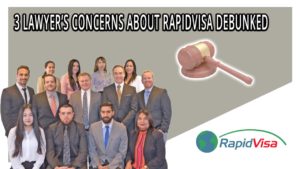How to get a certified translation of a foreign-language document
How do you get a certified translation of a document that is not in English?
As part of the green card process, you’ll need to submit documented evidence supporting your application. If any supporting document is not written in English, you must provide a certified translation. This guide will walk you through the process of properly obtaining and submitting a certified translation for immigration purposes.
Translation Basics
Which documents need to be translated into English?
Any document that the U.S. government requires for a green card application must be translated into English — whether that document applies to the sponsoring relative or the relative seeking the green card. Some examples include:
- Birth certificate (this is the most common document needing translation)
- Marriage certificate
- Divorce papers (if you were previously married)
- Police records
- Bank statements
NOTE: It isn't necessary to translate your passport into English. Always ask your RapidVisa Customer Service Advocate if you're not sure whether a document needs to be translated. You can also check the reciprocity schedule for this information.
IMPORTANT: RapidVisa has noticed an increase in RFEs (Requests for Evidence) on multilingual documents which can delay applications by several months, even though multilingual documents contain English.
Who is qualified to translate a foreign-language document into English?
Any person who considers themselves competent in both English and the document’s original language (such as Mandarin or Spanish) can be the certified translator. (See below for a full explanation of the certification requirement.)
Although the current immigration law allows you or your relative to be your own translators — if you can certify that you are truly competent in both languages — the decision to accept a certified English translation is always at the discretion of the immigration officer reviewing your documents. It is therefore a good idea to seek the help of a professional translation service or a friend or family member with such experience to avoid any delays or complications with your marriage-based green card application.
Some U.S. embassies and consulates also restrict acceptable translators to certain agencies. The U.S. embassy in Athens, Greece, for instance, will only accept translations from the Greek Ministry of Foreign Affairs. (Make sure to check the specific requirements of the U.S. embassy or consulate in your area before enlisting a service.)
Should the translation be typed, or can it be handwritten?
The translation itself must be typed. It must also be accompanied by a certification letter from the translator (see below for more details). Although technically it’s allowed for that certification letter to be handwritten, it’s best to type it up — nobody wants a green card application delay due to poor-quality documents.
Does the translation need to be notarized?
The government’s official rules do not require a translation to be notarized.
At what stage are translations required?
Most supporting documents, along with any necessary translations, are submitted as part of the initial green card application package. However, you may need to submit your documents at other stages of the green card application process, such as if the government sends extra questions through a request for evidence (RFE). You will also bring original copies of your documentation, including translations, when you attend the green card interview.
How much does a translation cost?
If you don’t have a friend or family member doing your translations for free, prices will vary significantly by location, service provider, and the number of documents and their complexity. In the United States, however, $20-40 per page is not uncommon for professional translation services (see our preferred provider below).
Preferred Translation Provider
RapidVisa has vetted dozens of translation providers, and recommends RushTranslate because of its translation speed, cost, and 100% USCIS translation guarantee. The Seattle-based company operates 7 days a week, 365 days a year and offers translation services for 60-plus languages. RushTranslate completed over 28,000 orders in 2019, and it currently has a 4.88 (out of 5) rating on over 4,600 reviews.
Cost: $25 per page (250 words or fewer)
We may earn a referral fee if you decide to purchase a product or service after clicking a link to a listed provider.
What Does “Certified” Mean?
Don’t panic! Although the government requires a translated document to be "certified," it does not require the person performing the translation to be officially credentialed in translation services. In other words, the translator doesn’t need to be a professional, just competent in English and the foreign language in which your document was originally written.
For a document to be considered “certified,” the person who translated it into English must write a formal letter stating that they:
- Are qualified to translate the document because they are competent in both English and the document’s original language.
- Translated the document accurately and completely to the best of their abilities.
In addition, the letter must include the following information about the translator:
- Full name
- Address
- Signature
- Date they wrote the letter
You must submit this certification letter with the translations and photocopies of the untranslated documents.
Sample certification letter
Certification by Translator
I, [full name], certify that I am [fluent or conversant] in English and [foreign language], and that the above/attached document is an accurate translation of the enclosed document titled [name of document].
______________________________
Signature
[Date]
[Translator’s Full Name]
[Translator’s Address]
To ensure accuracy and avoid complications with your family-based or marriage-based green card application, it’s generally best to seek the services of a reputable and professional translator, preferably one who is experienced in translating documents for immigration purposes (see our preferred provider above).
Special Situations
Your document is an abbreviated version of the original
If you need to request an official document from a government agency or other official record-keeper, you may receive an “extract” (or abbreviated) version of the document. This is a common practice in countries where documents were originally issued with information that is relevant only to their office or government. The abbreviated version omits the extra information.
USCIS and the State Department will accept an official extract version, as long as it was prepared by an authorized official and has all the information necessary to decide on a green card application. (For example, an acceptable extracted birth certificate translation would fully identify your parents, while the government would most likely reject an extracted birth certificate that listed only your name and date and place of birth.) It’s important to have a faithful translation of the whole document, whether or not it’s an official extracted version — the translator isn’t allowed to make their own abbreviations.


